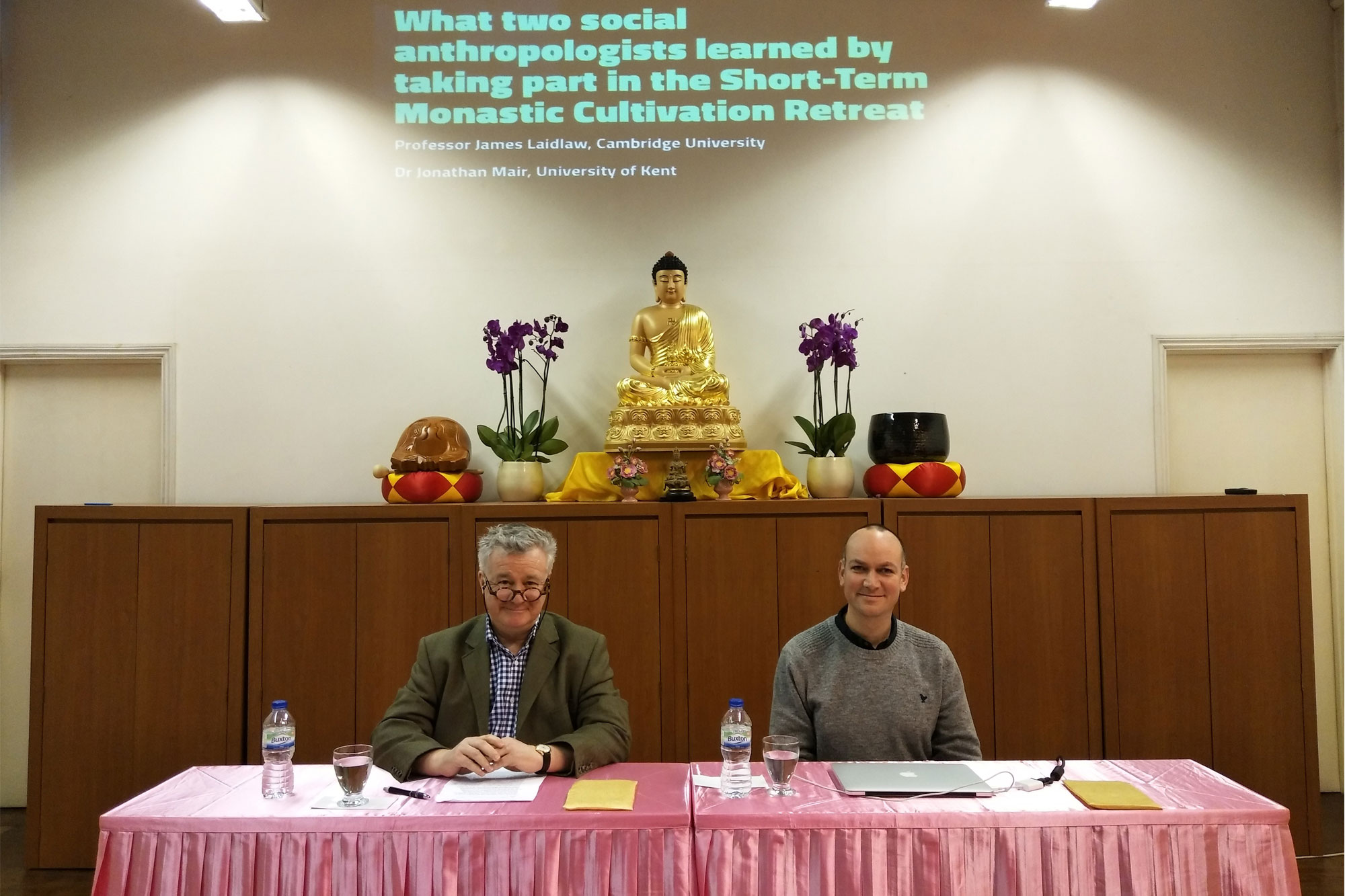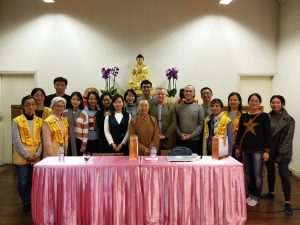Senior Lecturer in Social Anthropology, Dr Jonathan Mair presented his research findings at a Chinese community event hosted by London Fo Guang Buddhist Temple in Marylebone on Sunday 25th November 2018. The event was attended by over 50 members of the public.
In a talk titled ‘What two social anthropologists learned by participating in the short-term Monastic Cultivation Retreat’, Mair and his collaborator, Professor James Laidlaw, of the University of Cambridge, described the research and conclusions of a recently completed study on ethical practices in Chinese Buddhism.
The project, funded by the British Academy and the Leverhulme Trust, focused on a week-long residential programme developed in Taiwan from the 1980s by Humanistic Buddhist leader Master Hsingyun. Recently, it has become increasingly popular in mainland China, South-East Asia, Europe and North America. Participants live in a temple for a week, cut off from the outside world, and take ordination as monks and nuns. They live austerely, chanting, doing chores and listening to lectures, before relinquishing their monastic vows and returning to lay life. There are some similar practices in Southern, or Theravada Buddhism, but temporary ordination is without precedent in contemporary Northern, or Mahayana Buddhism.
The research on this international religious phenomenon involved a complicated combination of participant observation at retreats in Taiwan and France, and interviews in Taiwan, Singapore and Malaysia. Results have been written up in an article submitted for review to American Anthropologist.


